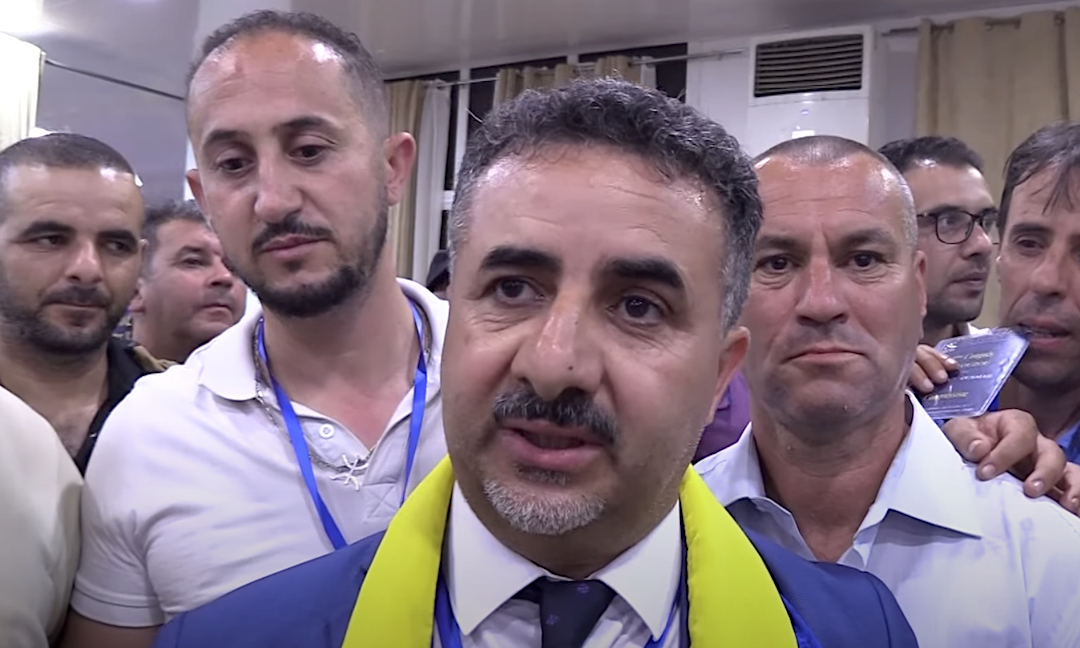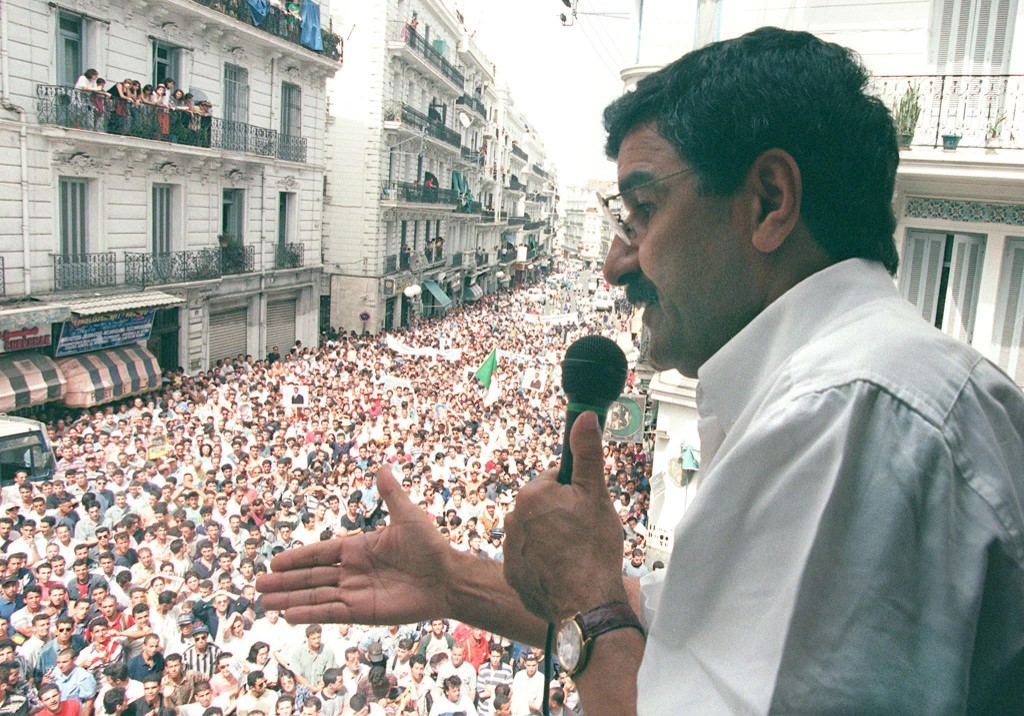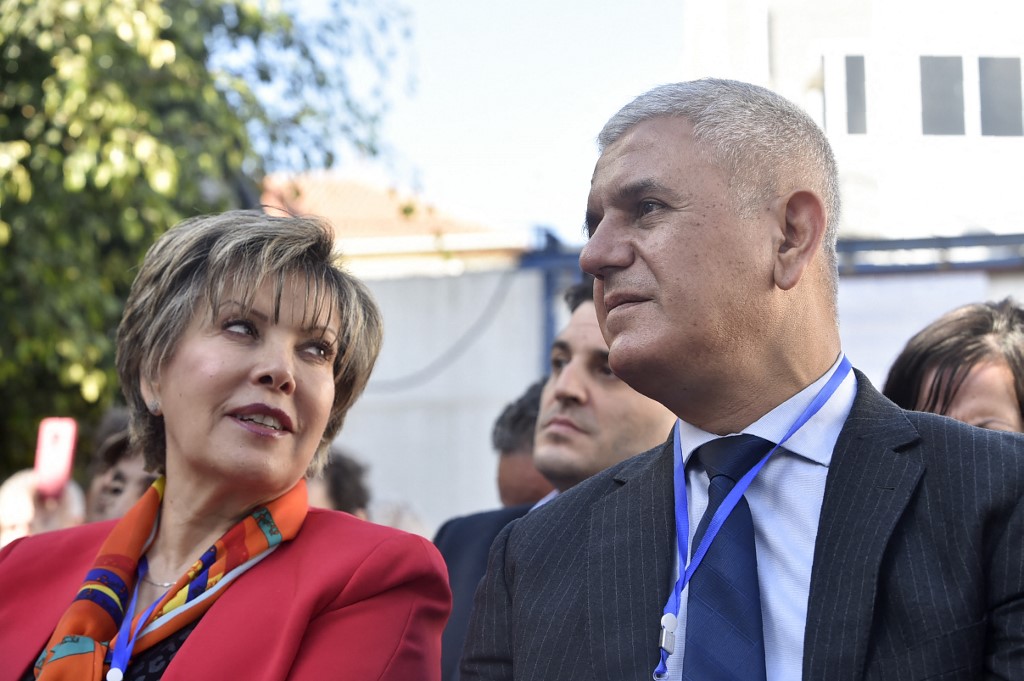Algeria: More than 30 years after its creation, the RCD is fighting for its survival

“President Atmane! President Atmane!” Amidst party supporters, to the sounds of cries and cheering, on Saturday 4 June, 51-year-old Atmane Mazouz became the third president of the Rally for Culture and Democracy (RCD), one of Algeria’s main political parties.
The day after his election, this former minister for Bejaiai (Kabyle) savoured his victory.
“Today is a great day for our party,” he said, during a brief speech given to the members of the party's national council, following his appointment by the 700 members of congress at the meeting in Zeralda, a suburb to the west of Algiers.
'Political activity is almost at a standstill, the media is muzzled, associative activity is controlled and lawyers are persecuted'
- Nacer Djabi, sociologist
A life-long supporter of the party, he knew that he had just made history by becoming the first president to be elected to lead the RCD in a tight ballot, beating his opponent, a younger activist named Mourad Biatour.
In 2012, his predecessor, Mohcine Belabbas, was catapulted to the head of the party by the historical leader, Said Sadi, then subsequently elected, uncontested, five years later, for a second mandate.
Stay informed with MEE's newsletters
Sign up to get the latest alerts, insights and analysis, starting with Turkey Unpacked
Coming from among the first wave of RCD supporters, Mazouz now faces the tricky challenge of setting himself apart from his two predecessors, to whom he paid homage.
“His two mandates as minister and the innumerable responsibilities he has held within the party management have given him a breadth of experience," said a source close to the party, speaking to MEE.
"But he is well aware that alone will not suffice. He has to work to unite a party splintered by infighting and the relentless pressure of power. And this on top of the regular threats the party receives from the authorities, who take a dim view of his refusal to adhere to the ongoing political process."
The newly elected president’s political activities have also got him in legal hot water, with proceedings underway against him.
A non-standard trajectory
The RCD has followed a different trajectory to the rest of the Algerian political class. With its roots in the 1989 opening up of democracy, brought about by the bloody demonstrations of October 1988, the party - led until 2012 by the charismatic leader Said Sadi - is now at odds with the direction in which new generations are taking it.
Founded by former activists seeking recognition of the Berber identity in Algeria, the RCD stands out for its solidly progressive stance: as well as defending fundamental liberties, the party has fought since its beginnings for the separation of religion and politics. Secularism lies at the heart of its policies, alongside gender equality and the establishment of a decentralised state.
Despite being openly critical of successive mandates, the RCD actually ended up allied with longtime ruler Abdelaziz Bouteflika’s government in 2000, only to leave it again under a cloud in 2001, in the wake of bloody demonstrations in Mazouz's home territory of Kabyle.
The party has received criticism for what had been seen as political opportunism, to the point of losing votes and ceding ground, specifically in Mazouz's own district in Kabyle, to the Movement for the Self-Determination of Kabyle (MAK separatists).
Moreover the party was also branded "militaristic" off the back of its support for the anti-Islamist policy adopted by the authorities during the "black decade".
The party has regularly participated in local and legislative elections, and its former president, Said Sadi, has twice courted the presidency of the republic. The official results have placed him each time second to last, with less than 5 percent of the votes still contested.
Since the birth of the anti-government Hirak movement in February 2019, leading to the resignation of President Bouteflika, the RCD has taken a more radical stance: it has refused to participate in the political process established by the authorities, seeking instead a constituent assembly and the introduction of a second republic.
This radicalisation has placed it in the crosshairs of the authorities which have threatened dissolution.
For the first time in 33 years, the RCD has allied with other parties with which it is ideologically aligned, parties of the Forces of the Democratic Alternative (PAD) - a name chosen to set it in opposition to the nationalist parties, the FLN and the RND ruling parties and against the conservative Islamists.
The members of this alliance are the only ones to reject the road map set in place by the authorities. A radical attitude for which some of these parties are paying the price: the Socialist Workers' Party (PST, Trotskyist) is currently suspended by the courts, while the Union for Change and Progress (UCP) has been threatened with the same fate.
The RCD and the Democratic and Social Movement (MDS, Communist) have received warnings from the authorities for having "organised meetings" at their respective headquarters. To minimise their importance, the government refers to them as "parties without support".
Of all the parties founded at the start of the 1990s, those refusing dialogue with the authorities are the only ones endeavouring to fan the flame of public rebellion.
Repressed liberties
Political scientist Louisa Dris-Ait Hamadouche, who prefers to classify these parties under the "progressive current", sees "an emerging trend consisting in declaring that Hirak has made progressivism much more centred on keeping public protest going" than other political parties, she explained to Middle East Eye.
Zoubida Assoul, president of the UCP and lawyer to several political prisoners whose parties are in the PAD, told MEE: “We haven’t agreed to participate in the electoral process put forward unilaterally by the authorities. We have previously set down our terms, including the respect of the basic liberties of the citizens which are contained in the Constitution, and we continue to this day to demand them, because there can be no political solution while people are in prison."
“For the first time in history, all the aims of the democratic movement were contained in one unprecedented popular revolution in 2019,” Ali Brahimi, former RCD deputy and long-standing supporter of the democratic movement, told MEE.
Despite several attempts, the RCD, in common with every other party in this political vein, “has failed to work with Hirak”, sociologist Nacer Djabi told MEE, with anger in his voice.
This failure is not wholly explained by the fact that the democratic current has not yet managed to make its mark, although it may “always have been weak” in the opinion of Djabi.
'For the first time in history, all the aims of the democratic movement were contained in one unprecedented popular revolution in 2019'
- Ali Brahimi, former RCD deputy
“Political activity is almost at a standstill, the media is muzzled, associative activity is controlled and lawyers are persecuted,” said the academic, describing a “political climate that is unconducive to even a reasonable, let alone good, political life.”
“The repression of liberties is profound, since it threatens even the very existence of the parties of the democratic movement” conceded Brahimi.
However, many observers and people active in the political arena cast doubt on the grassroots support for this movement. The democratic current “has not succeeded in creating a union basis, it hasn’t managed to attract the working classes," said Djabi.
"Neither has it succeeded in creating a strong student movement, a women’s movement… it is completely isolated with a weakened political structure while the Algerians grow increasingly distant from party politics."
This point is shared at least in part by Hamadouche, for whom this political current exists “in some metropolitan areas”, albeit that its support is “less numerous” than for the conservatives, for example. But this does not mean that it is not “well-structured”.
For the moment, Mazouz wants to “hold the course" adopted by his party.
As he waits to install the members of the national bureau who will accompany him in this task, he states that his priority is to “bring together the RCD family”, which is currently somewhat dispersed following multiple resignations from its ranks.
“I will bring together the ranks of the RCD, before uniting the democratic forces to build a powerful body well-positioned to further our aims,” he told MEE, at the time of his first public appearance after the election.
Middle East Eye delivers independent and unrivalled coverage and analysis of the Middle East, North Africa and beyond. To learn more about republishing this content and the associated fees, please fill out this form. More about MEE can be found here.







